#sustainable farming
Text
Every once in a while I’ll see some posts about everyone should become vegan in order to help the environment. And that… sounds kinda rude. I’m sure they don’t mean to come off that way but like, humans are omnivores. Yes there are people who won’t have any animal products be it meat or otherwise either due to personal beliefs or because their body physically cannot handle it, and that’s okay! You don’t have to change your diet to include those products if you don’t want to or you physically can’t.
But there’s indigenous communities that hunt and farm animals sustainably and have been doing so for generations. And these animals are a primary source of food for them. Look to the bison of North America. The settlers nearly caused an extinction as a part of a genocide. Because once the Bison were gone it caused an even sharper decline of the indigenous population. Now thankfully Bison did not go extinct and are actively being shared with other groups across America.
Now if we look outside of indigenous communities we have people who are doing sustainable farming as well as hunting. We have hunting seasons for a reason, mostly because we killed a lot of the predators. As any hunter and they will tell you how bad the deer population can get. (Also America has this whole thing about bird feathers and bird hunting, like it was bad until they laid down some laws. People went absolutely nuts on having feathers be a part of fashion like holy cow.)
We’re slowly getting better with having gardens and vertical farms within cities, and there’s some laws on being able to have a chicken or two at your house or what-have-you in the city for some eggs. (Or maybe some quails since they’re smaller than chickens it’s something that you’d might have to check in your area.) Maybe you would be able to raise some honey bees or rent them out because each honey tastes different from different plants. But ultimately when it comes to meat or cheese? Go to your local farmers. Go to farmers markets, meet with the people there, become friends, go actively check out their farm. See how the animal lives are and if the farmer is willing, talk to them about sustainable agriculture. See what they can change if they’re willing. Support indigenous communities and buy their food and products, especially if you’re close enough that the food won’t spoil on its way to you. (Like imagine living in Texas and you want whale meat from Alaska and you buy it from an indigenous community. I would imagine that would be pretty hard to get.)
Either way everything dies in the end. Do we shame scavengers for eating corpses they found before it could rot and spread disease? Do we shame the animals that hunt other animals to survive? Yes factory farming should no longer exist. So let’s give the animals the best life we can give them. If there’s babies born that the farmer doesn’t want, give them away to someone who wants them as a pet. Or someone who wants to raise them for something else. Not everyone can raise animals for their meat. I know I can’t I would get to emotionally attached. I’d only be able to raise them for their eggs and milk.
Yeah this was pretty much thrown together, and I just wanted to say my thoughts and throw them into the void. If you have some examples of sustainable farming/agriculture, please share them because while I got some stuff I posted from YouTube, I’m still interested to see what stuff I might’ve missed!
#solarpunk#farming#hunting#agriculture#sustainability#sustainable farming#sustainable agriculture#like Rewilding farm land is pretty interesting and trying to replicate an ecosystem with farm animals but also allowing wild animals#to make homes in the rewild farm land is pretty cool#and I have an absolute love for food/garden forests#and hydroponics have shown to be really great for communities in the winter time and they want to have fresh produce#all sorts of cool stuff
846 notes
·
View notes
Text
#talkin#tik tok#marshawn lynch#earthseed#pandora thomas#black people#sustainability#sustainable farming
847 notes
·
View notes
Text
In response to last year’s record-breaking heat due to El Niño and impacts from climate change, Indigenous Zenù farmers in Colombia are trying to revive the cultivation of traditional climate-resilient seeds and agroecology systems.
One traditional farming system combines farming with fishing: locals fish during the rainy season when water levels are high, and farm during the dry season on the fertile soils left by the receding water.
Locals and ecologists say conflicts over land with surrounding plantation owners, cattle ranchers and mines are also worsening the impacts of the climate crisis.
To protect their land, the Zenù reserve, which is today surrounded by monoculture plantations, was in 2005 declared the first Colombian territory free from GMOs.
#good news#science#environmentalism#indigenous people#indigenous agriculture#zenù#agroecology#nature#environment#farming#sustainable farming#climate resilience#climate change#columbia
55 notes
·
View notes
Text
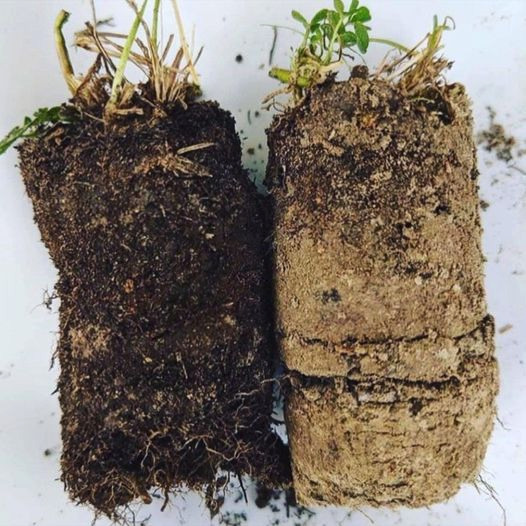
[ID: a photo of two soil samples. The left one is darker, and rich in nutrients. The right one is poor in quality with a pale color.]
From Farming, Foraging, and Fun on Facebook:
Whether you eat animals or not, animal agriculture is important for restoring environmental and soil health.
The soil on the left is the result of regenerative agricultural practices being implemented and holds significantly more organic and Carbon matter. Sheep and cattle were carefully managed and rotated on the land. They ate the grass, deposited their urine and dung and were then moved away to let the grass grow back quickly.
The cycle is then repeated at a later date depending on season variability and vegetation recovery. This allows the pulling of carbon into the soil. It is darker because carbon from the atmosphere is now in the soil making it more nutrient rich and dense.
The soil on the right is from a commercial farm that grows grain and uses no animals on the land.The soil with more carbon holds a lot more water (roughly 150,000 liters of water per hectare for every 1% of carbon that’s added) and is full of microbes.
Animals play a crucial role in regenerating the land and getting carbon into the soil when properly managed.These ‘regenerative’ practices also can be applied to crop management through the careful integration of livestock.
142 notes
·
View notes
Text
If we want to reduce the heat we need to plant way more trees.
They provide shade, food, and effectively cool down the environment because they don’t hold heat like asphalt, pavement, bricks, traditional roofs, etc.
Trees provide habitat for birds which eat immense amounts of insects including caterpillars, mosquitos and flies, while also fertilizing the soil with their manure.
Some trees fix nitrogen into the ground making the soil more fertile in a natural and effortless and free way, just by standing there.
More trees also means more wood.
Trees can be used to create food forests, which in turn reduce the chances of forest fires because with well-managed living crops growing in the soil under the trees they hold more moisture and don’t catch on fire so easily.
You can prune them at will to give the lower crops the perfect amount of light and shade. With the pruning we can create mulch, (fire)wood, and wood chips mixed with mycelium for making walkingpaths that grow mushrooms.
Add a small amount of chickens per large area and you have extra fertilization and excellent pest control as they eat the insects that also like to eat vegetables. Include ducks and they will get rid of the slugs too.
Tree roots also hold the soil together, preventing soil erosion while providing excellent drainage so that when it rains, the water can penetrate the soil faster and deeper, effectively absorbing floods as well.
#permaculture#sustainable farming#garden#gardening#organic gardening#food forest#foodforest#biodiversity#regenerative farming#regenerative agriculture#regenerative ag#regenerative gardening#organic agriculture#bio#organic#how to prevent forest fires#how to make more food#how to create more food#foodshortages#plant more trees#trees#planting trees
203 notes
·
View notes
Text
"Protecting Our Food Supply: The Importance of World Bee Day"
"Happy World Bee Day! Let's protect these vital pollinators and ensure a healthy and sustainable future for our food supply and environment. #WorldBeeDay #Pollinators #Biodiversity"
This past Saturday, May 20, 2023, was the observance of World Bee Day. We should take the time to acknowledge the benefits and the importance of these tiny workers and recognize their vital role to the survival all life on this planet! Everyday is World Bee Day!
Rod W
World Bee Day is celebrated annually on May 20th to raise awareness about the importance of bees and other pollinators for our…
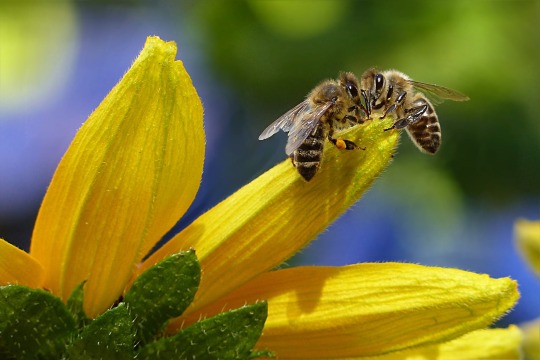
View On WordPress
#Bees#Biodiversity#conservation#ecosystem#food supply#habitat loss#pesticides#pollinators#sustainable farming#World Bee Day
21 notes
·
View notes
Text
I’m shocked, shocked I say!
97 notes
·
View notes
Text
One day I may step into our house, covered in dirt and hay, and you will kiss my cheek and that will be enough
#aestethic#farmcore#sustainable lifestyle#sustainability#sustainable farming#cottagecore#mlm#hi#like hello#single and wanting to mingle#gay yearning#farmlife#farm aesthetic#farm core#farmstead#cottage aesthetic#masc farmcore#aesthetic#gardenblr#message me#positivity#i love ducks#gayfarmdreamer romance fantasies
12 notes
·
View notes
Text
Why Is Arnold Schwarzenegger Vegan?
Introduction
Why is Arnold Schwarzenegger vegan? This question piques the curiosity of many, given Arnold’s iconic status as a world-renowned bodybuilder, actor, and former governor. Known for his extraordinary physique and strength, Arnold’s switch to a vegan lifestyle seems contrary to the stereotypical image of a meat-consuming bodybuilder.
This article delves into Arnold Schwarzenegger’s…

View On WordPress
#animal welfare#Arnold Schwarzenegger#celebrity vegan advocates#environmental advocacy#environmental impact of diet#ethical eating#fitness industry#health benefits of veganism#plant-based diet#plant-based protein#strength and veganism#sustainable farming#sustainable living#vegan lifestyle#veganism and muscle building#Why Is Arnold Schwarzenegger Vegan
3 notes
·
View notes
Text
These resources are for people wanting to eat locally. These sites are just for finding the farms near you. What each farm near you has will vary. I have some near me that only do meat but others that do produce and even milk.
If you're wanting to but not sure if you can afford making a switch like this I recommend the book "Long Way on a Little" by Shannon Hayes(It's like $30 new but about $10 used on abebooks)
#cooking#adulting#sustainable farming#I've talked about farmish before but i honestly love it#im not affiliated with any of these#i just like them
7 notes
·
View notes
Text
Today I got to pet a miniature guard donkey
Just thought you (my 27 followers and the abyss of the internet) should know
Highlight of the year
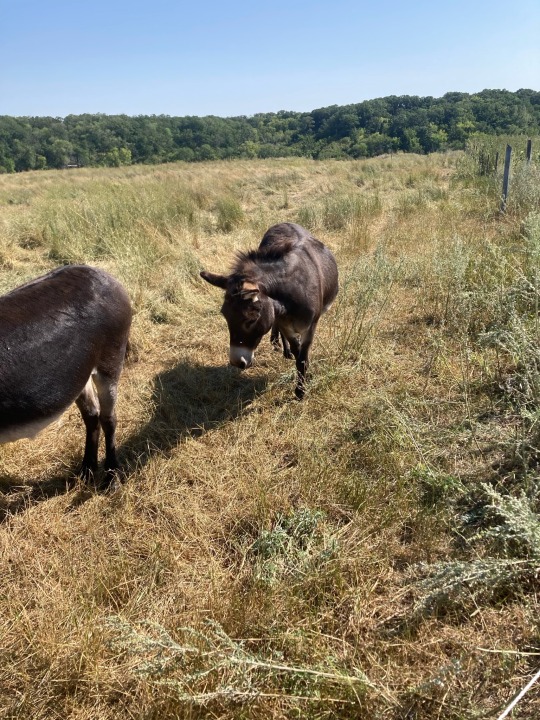
Visit to a small holistic farm
#sustainable#sustainable farming#holistic farm#environmentally friendly#environmentally friendly farm#personal#positivity#donkey#small animals#animals#farmblr#farm
31 notes
·
View notes
Text
#good news#science#environmentalism#bacteria#microbiology#carbon offset#carbon sequestration#carbon sinks#carbon emissions#sustainable farming#agriculture#greenhouse gas reduction#carbon zero#environment#nature#climate change#climate crisis
16 notes
·
View notes
Text
Why Vent Sexing Chicks is an Unethical Practice
In my last article, it explaings that chicks cannot be sexed. There is and exception and this article will explain why we should strive to stay away from purchasing chicks from individuals that practice vent sexing.
1. The poultry industry often employs various methods to identify the gender of chicks, with one common practice being vent sexing. However, it is crucial to understand why vent sexing is not an acceptable practice from an ethical standpoint, considering the potential harm it causes to the chicks involved.
2. Vent sexing defined: Vent sexing is a process in which chicks are sorted based on their gender by examining their genitalia, called the vent, which is located near their cloaca. This method is often used to separate male and female chicks at hatcheries, primarily for commercial purposes.
3. Accuracy concerns: While vent sexing may offer a relatively quick method of gender identification, it is not foolproof. Even experienced professionals can make mistakes, leading to misidentification of chicks' genders. This can result in unintended consequences, such as incorrect breeding programs or unnecessary culling of valuable birds.
4. Stress and discomfort: Vent sexing involves manually manipulating the delicate genitalia of young chicks, which can cause significant stress and discomfort. The process can lead to injuries, infections, or even death, as the chicks are fragile and still developing. Engaging in practices that cause harm to animals contradicts the principles of animal welfare.
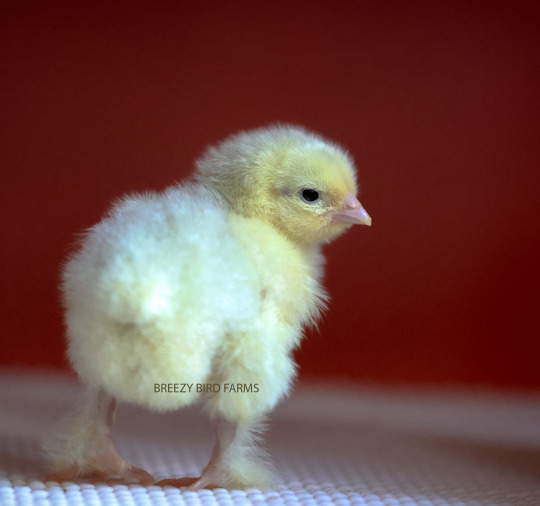
5. Unnecessary culling: Vent sexing is commonly used to identify male chicks, as they are often considered economically less valuable in the poultry industry. Consequently, male chicks are often culled shortly after hatching, leading to their untimely deaths. This mass culling of male chicks raises concerns about ethical treatment and the disposable nature of these animals.
6. Alternatives to vent sexing: With advancing technology, alternatives to vent sexing are emerging. Non-invasive methods such as DNA sexing, infrared imaging, and spectroscopy offer more accurate and humane alternatives. By adopting these alternative methods, we can minimize the negative impact on animal welfare and promote ethical practices within the poultry industry.
7. Animal rights perspective: Vent sexing raises ethical questions regarding the treatment of animals as mere commodities. Every living creature deserves to be treated with respect and dignity, and subjecting chicks to invasive procedures for mere gender identification purposes contradicts this fundamental principle.
8. Education and awareness: Raising awareness about the negative aspects of vent sexing is crucial to promote change within the poultry industry. By educating consumers and industry professionals about the ethical concerns associated with vent sexing, we can encourage a shift towards more humane practices.

9. Focus on chick care: Instead of relying solely on gender identification, the focus should shift towards providing optimal care for all chicks, regardless of their gender. This includes proper nutrition, housing, and veterinary support to ensure the well-being and healthy growth of every individual chick.
10. Sustainable farming practices: Embracing sustainable farming practices that prioritize animal welfare and minimize harm is essential in today's world. By moving away from vent sexing and adopting alternative methods, we can contribute to a more sustainable and compassionate future for the poultry industry.
Vent sexing chicks is not an acceptable practice due to its potential for inaccuracy, the stress and discomfort it causes to the chicks, unnecessary culling, and its ethical implications. By promoting awareness, encouraging alternatives, and prioritizing animal welfare, we can work towards a poultry industry that values the well-being of every individual chick.
Stay tuned for the next article that talks about auto-sexing chicks. If someone is inclined to know the sex of the chick, there is a natural way to identify gender without applying cruel methods.
Candace
Breezy Bird Farms
#chick sexing#animal welfare#gender identification#poultry industry#alternatives to vent sexing#ethical practices#hatcheries#animal rights#chick care#sustainable farming
2 notes
·
View notes
Text
I want to leave everything behind and move to the country and create a sustainable homestead to raise a family and live on but not in a tradwife, old fashioned values, ‘natural’ gender roles way, more in a reject capitalism, embrace solitude, nurture my creative mind, create a space for friends and family to cohabit and pass through so I can be connected to the land and the people I love forever way.
#also the city is so expensive man!#just found out that the toytown suburban houses that are being put up in rows an hour and a half outside the city begin at 600k#own property? in this economy? no#but i love the cafes and galleries and feeling of being anonymous in a crowd#and everyone in the city is so much more fashionable and i feel much more comfortable expressing myself#the city will be for my 20s i think and then i'm assuming i'll get exhausted#slow living#country#cottagecore#sustainable farming#also i have always wanted to own a goat#it was an obsession of mine as a 2 year old#tradwife#mine#dear diary
3 notes
·
View notes
Text
Some of June’s produce
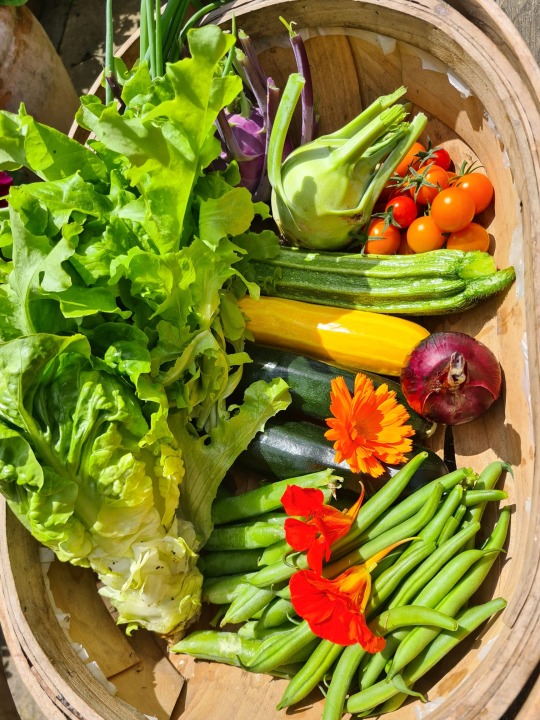
#grow your own gyo#allotment#gardening#garden#grow your own#gyo#vegetables#flowers#summer#gardens#kitchen garden#fruit and veg#veg#fruit#sustainable farming
12 notes
·
View notes
